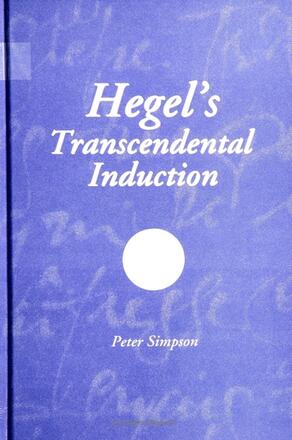
Hegel's Transcendental Induction
Alternative formats available from:
Challenges the orthodox account of Hegelian phenomenology as hyper-rationalism, arguing that Hegel's insistence on the primacy of experience in the development of scientific knowledge amounts to a kind of empiricism, or inductive epistemology.
Description
Hegel's Transcendental Induction challenges the orthodox account of Hegelian phenomenology as a hyper-rationalism, arguing that Hegel's insistence on the primacy of experience in the development of scientific knowledge amounts to a kind of empiricism, or inductive epistemology. While the inductive element does not exclude an emphasis on deductive demonstration as well, Hegel's phenomenological description of knowledge demonstrates why knowing becomes scientific only to the extent that it recognizes its dependence on experience.
Simpson's argument closely parallels Hegel's own in the Phenomenology of Spirit, highlighting those sections, like Hegel's analysis of mastery and slavery, that contribute to the argument that knowing is both vulnerable and responsive to the way in which experience resists our attempts to make sense of things. Simpson's argument connects his account of Hegelian phenomenology with traditional accounts of induction, and with a number of other commentators.
Peter Simpson is Assistant Professor of Philosophy at Laurentian University.
Reviews
"The central thesis about the inductive development of the Phenomenology is worked out with care. This thesis allows the author to present fresh and often compelling re-readings of such often commented on themes as the natural consciousness, desire, slavery, morality, and forgiveness. Since Hegel himself does not describe his method in terms of induction, this book suggests a truly interesting shift of perspective on the Phenomenology. " — Daniel Berthold-Bond, Bard College